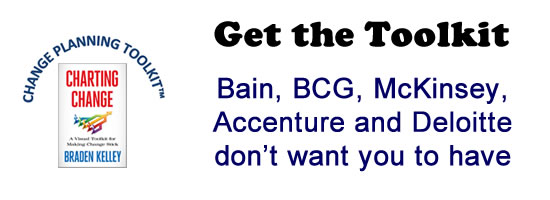Intuition is Essential for Innovation

In 1996 I conducted a large research program on leadership development. I had been a director in multinationals for a long time, and was frustrated by the lack of behavioural results the leadership curriculum was generating. So I set out to find out what actually helped business leaders to learn.
One of the outcomes of the research was that top leaders usually said their intuition was their main source of innovation. They practiced every day at integrating intuition, data and experience to create innovation strategies.
In 1945 Berne had to participate in the  psychiatric examination of 25,000 soldiers in just four months. He had on average 40-90 seconds for each examination. Given his limited time he only asked two questions:
- Are you nervous?
- Have you ever been to a psychiatrist?
Later Berne added questions about the occupation of the parents.

From his writings we know that Berne’s intuitive prediction of the answers the similarly-clad soldiers would provide was higher than when judgements were attempted on the basis of deliberate analysis. Berne was able to guess something about the soldiers, for example their previous occupation, with a good degree of accuracy, but he wasn’t able to logically explain why. This fascinated Berne, and he started to study intuitive phenomena more.
Let’s take this back to a business context, imagine if you and your team were able to improve your intuition, you’d be able to make better decisions, faster. First, let’s look at what intuition is, then in a later article we’ll cover improving your intuitive skills.
Imagine if you and your team were able to improve your intuition, you’d be able to make better decisions, faster…
The nature of intuition
According to Berne, intuition is knowledge based on experience and acquired through sensory contact with the subject without being able to formulate how you came about those conclusions. The chief requisite of accurate intuition seems to be an active and concentrated state of alertness and receptiveness.
There are different levels of intuition to discern (Frances E. Vaughan):
- Physical – intuition is felt as a bodily sensation, for instance the hairs on the back of your neck stand up before you even know there might be a threat.
- Emotional – intuition in the form of feelings, for instance a sense of foreboding following your neck hairs rising.
- Mental – insight into patterns of seemingly unrelated facts, for instance in a detective movie the combination of open front door, all the lights out, not answering your hello means something is very wrong.
- Spiritual – intuition as transpersonal sense of oneness with life, for instance a general sense something is about to happen.
Results of intuition
Process: People with good intuitive skills lack awareness of how their judgements have been achieved. They find it difficult to show evidence for the judgment, but they are frequently right. The intuitive process occurs automatically for them.
Content: Rather than relying on backward looking (hypothesis) decision making they take advantage of forward looking (prediction) planning. They often note that their intuition is more a feeling or image than words. It is imprecise.
Certitude: People report greater confidence in intuition if there is no accepted analytic rule to solve the problem. Their intuition serves them with certitude as situations become more complex.
Speed: They report that their intuition sometimes appears quickly, they get a ready insight. For example, Archimedes in the bathtub. Sometimes they report slow building realizations, like Fleming with his discovery of penicillin, a happy accident as an extension of his many previous years of research.
Accuracy: Intuitive errors tend to be clustered around incorrect assessment e.g. total sum of purchases. Analysis produced fewer errors, but those errors were larger.
RATE: Radical Agile Transformation Exercise
Find a group of colleagues and check out your intuition. Sit across from one of them and without asking questions or commenting tune in to them. Close your eyes, free yourself of any thinking or presupposition. Sense who is sitting across from you. When you are ready, share your intuition about their father’s profession and their mother’s profession.
Even if you may not be right about the exact profession, check out if the domain you sensed was in the right direction.
Bibliography: References & links
The Nature of Intuition, Berne, 1949
Awakening Intuition, Frances E. Vaughan, 1979
Wait! Before you go…
Choose how you want the latest innovation content delivered to you:
- Daily — RSS Feed — Email — Twitter — Facebook — Linkedin Today
- Weekly — Email Newsletter — Free Magazine — Linkedin Group
 Sari van Poelje has 30 years experience of innovation on the interface of leadership and organizational development, executive coaching and transactional analysis both as a director within several multinationals and as an international consultant. Specialization in creating agile leadership teams and business innovation! She is the author of numerous articles and books on leadership and change.
Sari van Poelje has 30 years experience of innovation on the interface of leadership and organizational development, executive coaching and transactional analysis both as a director within several multinationals and as an international consultant. Specialization in creating agile leadership teams and business innovation! She is the author of numerous articles and books on leadership and change.
NEVER MISS ANOTHER NEWSLETTER!
LATEST BLOGS
Three things you didn’t know about credit cards
Photo by Ales Nesetril on Unsplash Many of us use credit cards regularly. From using them for everyday purchases to…
Read MoreFive CV skills of a business-minded individual
Photo by Scott Graham on Unsplash The skills listed on a CV help employers quickly understand your suitability for a…
Read More


